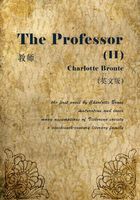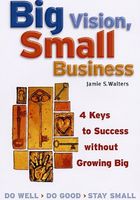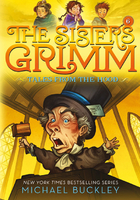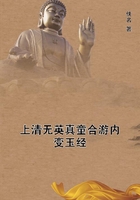Stafford, an ancient borough and market-town celebrated for its red bricks, its shoes, and its salt works, contains no less than thirteen thousand inhabitants; of whom at least three thousand (or so we were assured by the landlord of The Junction Hotel) are usually sober-reckoning children among that number. As seen from the railway, the town appears, at this season, like an island lying in a yellowish lake. The farmers here flood their meadows to manure them, and the aptly named River Sow is therefore divided into a dozen or more streams, which career crazily along with their discoloured waters, in haste to hurl themselves into the swollen Trent below.
All the new houses are built in brick so red that it hurts the eyes-as though one were staring at the fire-and capped by ugly slate roofs. Yet cross the long wooden bridge with its white railings, near the Railway Station, turn around by a flour mill and follow the lane until you reach Greengate Street; and there you will find a charming row of old half-timbered houses on either side of the street, some large, some small, but all with heavy carved gables, and warm-coloured plaster set between the dark-brown timbers.
One house close to the Market Place is well worth a visit. Its great forehead hangs half-way over the pavement, with large bay windows like four-poster bedsteads let into the wall. The pale oaken beams standing out from the plaster work are arranged in a variety of graceful lines that recall the tattooing on the body of a South Sea Islander. Messrs Jenkinson & Co., linen-drapers, occupy the premises, and their shopwindow is decked out with every article 'that fashion can require or beauty desire'-as an advertisement informs us. Festoons of pink and blue ribbon elegantly droop from side to side, and bright yellow driving gloves are arranged in straight lines across the panes. At the entrance door, a bundle of coloured silk parasols and another of sober black umbrellas are stacked like so many halberds in an armoury; and through the bay windows above you can see piles of blue hat boxes, tall slabs of linen cloth, and portly canvas blocks of unpacked goods, bound around with bands of iron, as if to keep their figures in. Mr Jenkinson, the proprietor, will be introduced to our readers presently.
Meanwhile, here is the Town Hall, towering up from the Market Place, with a clock stuck against it like a target. It can hardly be called a pretty building, having no more ornament than a blank sheet of writing paper, and the windows are mere holes in the wall; but at least it is built of Portland stone, not red brick. On either side of it stand half-timbered houses, with cock-hat roofs and their fronts slashed like a soldier's uniform, which lend its pallid stucco walls a certain aristocratic dignity, as it might be an austere and gloomy Tsar surrounded by his merry Muscovite bodyguard. Then, for Tsarina, you have the tall, white, square tower of St Mary's, a church founded by King John, and famous for its memorial to Stafford's most celebrated son-Izaak Walton, the Angler. Passing the Grammar School, an ancient foundation enlarged by King Edward VI, you will observe a dozen or more inns; an elegant bowling green; and the Stafford Infirmary, about whose architecture the less said the better, but which has now acquired a certain historic lustre from the circumstance of William Palmer's having, for a period, walked its wards.
There are many better-and we fear, many even worse-hospitals for the indigent sick than dais Infirmary. Money for its support being grudgingly voted, because the expense falls on the rates, the accommodation is wholly inadequate, and amenities are very few. Most patients regard their transference here as tantamount to a sentence of death, though the medical staff, we understand, show a praiseworthy devotion to their duties, and though one or two at least of the younger surgeons are aware not only of the anaesthetic use of ether in operations, but also of the principle of antisepsis as recently discovered by Mr Joseph Lister, house-surgeon at University College Hospital. For in practice, ether, as an unnecessary expense, is never administered; and antisepsis is difficult to achieve in an out-of-date building where hospital gangrene and pyaemia must remain a constant scourge, and where the shortage of nurses, except the drunken and incapable, rules out even elementary cleanliness in the wards.
Hospital reform, however, is not the subject of our study; let it suffice to say that a walking pupil in Stafford Infirmary, or any other similar institution-if he is not to become the victim of a nervous disorder-must habituate himself to distressing sights, noisome smells, and such a scene of human misery, despair, and degradation, that his susceptibilities will soon become blunted. To relieve his mind of these horrors he may well be tempted to abandon shame in the wildest larks and most outrageous debaucheries.
William Palmer went to the Infirmary about Midsummer, 1845; but did not remain there for more than a few weeks.
Mr Edward Jenkinson, linen-draper, a small, stout, irascible man with a huge strawberry mark spread across his face and very disagreeable features, was holding forth about William Palmer in The Dolphin Inn the other day, shortly before the trial at the Old Bailey began. Mr Jenkinson drinks neat brandy only, and can afford this luxury; for he is well-to-do and has no family to support, his physical disadvantages having decided all the women to whom he ever offered marriage that they would be far better off in any other circumstances whatsoever. The contempt with which some of them accompanied their refusal has turned him into a misogynist, though one unable to conceal the jealousy he feels for men to whom women freely yield their favours, even uninvited.
MR EDWARD JENKINSON
It would never have come to this, I swear, had my fellow-jurymen listened to me eleven years ago, when the first of Palmer's vile crimes came to light. He was then a walking pupil at the Infirmary, and had not yet inherited his fortune. But he talked freely about how he proposed to spend the money, and the number of foolish girls whom he persuaded that they had been born expressly for the purpose of assisting him to do so must have run into double figures. Palmer had the power of deceiving himself as a means of deceiving his victims: he proposed marriage to each in turn, and convinced himself that she was the most desirable woman alive. If the girl anticipated marriage by granting him what he asked, Palmer at once cooled towards her, as too giddy to be his wife; if, on the other hand, she refused, he thought her cold, and abandoned the chase. It is said that he got two girls in the family way during his apprenticeship with Dr Tylecote at Haywood, and three more in Stafford; but that is mere gossip from the public houses.
One day I was summoned to attend a coroner's inquest on the death of a shoemaker named Abley, and my fellow-jurymen elected me their foreman as perhaps the most talented… well, for whatever reason it may have been, they elected me. The evidence was provided by Mrs Bates, the landlady. It appears that Palmer invited Abley to take a drink at The Lamb and Flag-it was a cold, raw day-and asked him what he fancied.
'A pint of ale, if you don't mind,' says Abley.
'Come, come,' says Palmer, 'don't stint yourself! A pint of ale falls chill on the stomach in weather like this. I'll treat you to something better. What about a sip of brandy?'
Abley says that he's no great shakes at brandy drinking, but at this a young Rugeley fellow named Timmis, who had been at Bonney's school with Palmer, pipes up: 'Abley's damnably modest. He's one of the grandest brandy-drinkers in the county. Why, I've seen him toss down three tumblers full, one after 'tother, and not turn a hair.'
'I'll lay you three to one in half-sovereigns,' says Palmer, 'that he can't down more than one.'
Timmis then takes Abley aside and says: 'Did you hear that? Palmer's word is his bond, and if you drink a couple of tumblers it will be worth thirty shillings to yours truly.'
'What you win is of no interest at all to me,' says Abley. 'Nor am I any sort of a drinking man. All I want is my pint of ale, and if Mr Palmer grudges me that, I'll pay it myself.'
'Come, don't be unreasonable,' says Timmis. 'What are two tumblers to a bold fellow like you? Drink them down quick, as if they were medicine, which indeed they are, and I'll give you one half-sovereign of my three.'
'Agreed for fifteen shillings,' says Abley, 'which must be handed in cash to Mrs Bates, who'll pay me when I've sobered up.'
'Very good,' says Timmis, and entrusts the money to Mrs Bates.
Abley then accepts his first tumblerful of brandy-right French brandy from Cognac-and drains it, like a soldier of the Line. While all eyes watch him do so, Palmer waits at the bar, with his hand on the second tumbler, which he presently takes over to Abley. 'You conquered that manfully,' he said, 'but I wager this will make you choke.'
Abley downed his second dose, without heel-taps, neither. The men in the tap-room laughed and joked a bit at Palmer's expense. 'Never mind,' Abley says, 'I'd do the same again for fifteen shillings, these hard times.'
Presently he turns greenish and, says he: 'I'll go into the stable. I'll be cleared out just now and ready for my pint at last.'
'Good luck to you,' says Palmer. He pays his debt to Timmis, and then launches into a long, tantalizing story, a cruelly funny one too, so the fellows said, about the straits to which a ship's crew were reduced for lack of women on a long voyage of exploration in the Arctic Seas. Never you mind the details, but it kept the house in a roar, being very comically told. Timmis capped it, and then another customer chimed in-the landlady meanwhile hiding her blushes behind a row of bottles. Everyone had forgotten Abley, and it was nigh an hour later that Palmer paid his score and sauntered off. Then someone remarks: 'Abley's not come back for his pint, has he? I wonder how he's faring?'
A search was made, and they found Abley stretched on a heap of sacks in the stable, groaning, with both hands pressed against his stomach. Two men carried him home and put him to bed between warmed sheets; but he died the same night.
At the inquest we jurymen viewed the body, and some of us were satisfied that since Abley had been a thin, pale man in indifferent health, to drink two full tumblers of brandy on an empty stomach and then lie in the cold stable for an hour or longer was a fatal act-even though the intention cannot have been suicidal.
But I smelt a fishy smell to the business, and when the other parties wished to bring in a verdict of death from natural causes, I said: 'Gentlemen, that don't satisfy me, and I'll tell you why. Stafford is a small town, and a good deal of talk goes on in one tavern and another, some of it false, some of it true, some of it half and half. Well, I was at The Junction last night, and heard talk there about this Palmer, who laid with his old school-fellow that Abley couldn't down more than a single tumblerful. It seems that Mrs Abley, a buxom young wench, has been an out-patient at the Infirmary-she goes to be dressed for a severe scald on her thigh, caused by a jet of boiling water from a kettle. Palmer was directed to dress the wound in this intimate part of her frame, and from the confidences which she made to a neighbour's wife it seems that a mutual attraction ensued. However, Mrs Abley is not entirely lost to shame. She is reported to have said: "Mr Palmer, though I admit to a sincere affection for you, I am not forgetful of my marriage vows, and while Abley lives I shall be faithful to him."
'"Why, that is a pity," says Palmer, "for you are the very woman I should otherwise have asked to be my wife and help me spend my inheritance wisely and well. But there's no help to it, I see. If you take marriage that seriously, we must both pine apart."
'"I have no complaints against Abley," says she. "He's a good husband in his way, industrious and thrifty, though not everything I could wish as a lover-no, not by any means. And his stomach never having been good, I have to cosset him with baby-food, a diet which does nothing to whet his desire for me. If only I could give him shell-fish, and great bloody beef-steaks, and roasted love-apples! Yet I have never seen him drunk in my life, nor even the worse for liquor, and there are all too few married women in Stafford who can say that of their husbands."'
A juryman asked me: 'You think, then, Mr Jenkinson, that the business at The Lamb and Flag had been rigged-that it was Palmer's intention, with the connivance of Timmis, to discredit Abley in the eyes of his wife by sending him home reeling drunk? Or was it perhaps so to stupefy him with drink that he wouldn't come back at all that night, but leave room in his bed for another?'
'No,' I answered, 'my suspicion is an even graver one. I think that he planned to murder the poor shoemaker!'
'You are suggesting, Mr Jenkinson,' says the juryman, 'that, having diagnosed a weak heart, he counted on the action of the brandy to kill him, and deliberately embarked on that smutty story of the sailors and the polar bear to distract attention from Abley's fate?'
'It is my decided opinion that he did not count on the action of the brandy alone,' I said. 'I keep my ears open, and one of my carters happens also to be an out-patient at the Infirmary. Yesterday I asked him: "Bowles, what do they say up yonder about young Palmer, the student?" And Bowles told me that Palmer is said to be the devil of a rake with flighty young women; and that a new order posted on the notice-board is aimed at him. "What order?" I asked Bowles. "Why, Master," he answers, "I mean the order which forbids the Infirmary pupils to have anything further to do with the dispensing of medicines. There's a shortage of hands at the Infirmary, you see, Master; and no paid officer employed at the dispensary; in consequence, any pupil can go there and mix what drugs he pleases, pretending that he's been ordered to do so by a medical officer. Well, it's buzzed about that Palmer has been in the habit of conducting experiments of his own in the dispensary-'for a lark,' he says. He's been putting drugs in fellow-pupils' drinks to make them vomit, or piss green, or fall into drowsy fits from which they awaken only with hardship and aching heads."'
I continued: 'This is all hearsay evidence, gentlemen, I admit. But there's no smoke without a fire, and I therefore propose we demand an autopsy, and thus satisfy ourselves that no "lark" was perpetrated on the unfortunate man by Palmer. On the evidence, he had the opportunity to slip something into the second tumbler of brandy, while all eyes were watching Abley's consumption of the first.'
My fellow-jurors objected to this as an unproved surmise, and argued that on my own showing Palmer did not love Mrs Abley with sufficient passion to plan her husband's death; and that if he had perhaps dosed the brandy, this was not done with intent to kill. The verdict would, at the worst, be 'manslaughter'. 'He's well loved at the Infirmary,' one of them said, 'and I should not, myself, care to set so black a mark upon a young fellow's name.'
'The law's the law,' I insisted, 'and we have been charged to decide upon the cause of Abley's death without fear or favour.'
In the end, I persuaded them to demand an autopsy, despite the inconvenience that the delay must cause us all; and Dr Masfen from the Infirmary duly performed his disagreeable and thankless task. But the vomit in the stable had meanwhile been swabbed up, and Abley's stomach was empty, except for some cordial draught which he had been given by his wife when at the point of death; thus it was too late to secure a sample of the fatal draught for analysis. Moreover, the stomach showed signs of chronic inflammation; and Dr Masfen pronounced that death seemed due to natural causes. This was accordingly our verdict, though I didn't like it, by no means.
A fortnight later-not so soon as to make it seem that the warning had any connexion with the inquest, but soon enough-Palmer was privately advised to leave the Infirmary. In my opinion, the medical officers feared that if they took disciplinary action, Palmer would charge them with defamation of character; and their own negligence in the matter of allowing pupils to dispense dangerous drugs might come to light. It may even be that if some medical gentleman unconnected with the Infirmary had performed the autopsy, he would have found more than Dr Masfen troubled to find. For if the state of Abley's stomach had betrayed the action of poison, would the Infirmary staff have escaped censure? Tell me that!
Idle talk, I say, idle talk! All I know for sure is that Palmer let his acquaintance with Mrs Abley lapse. He suspected, I have no doubt, that its renewal would be dangerous.















